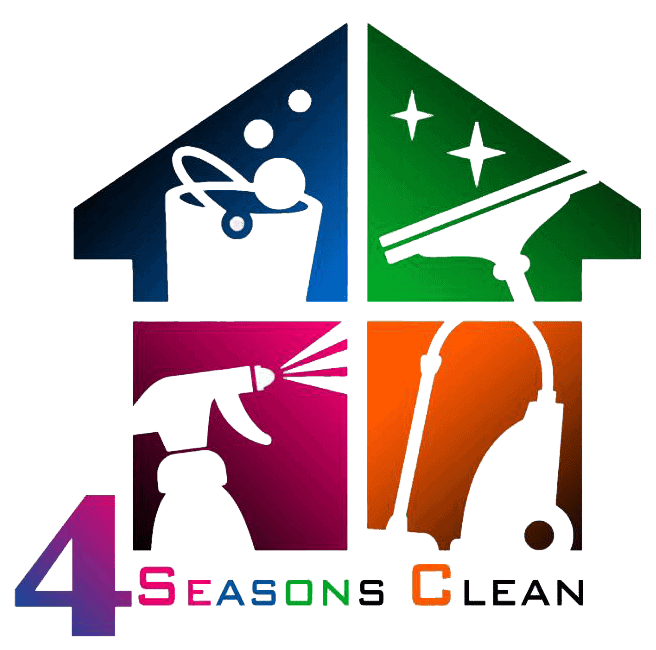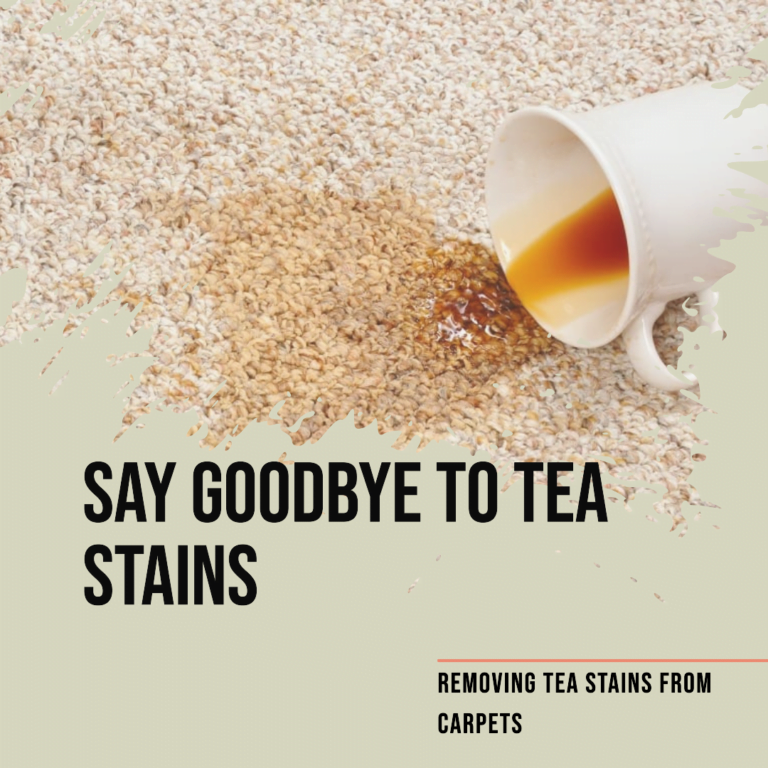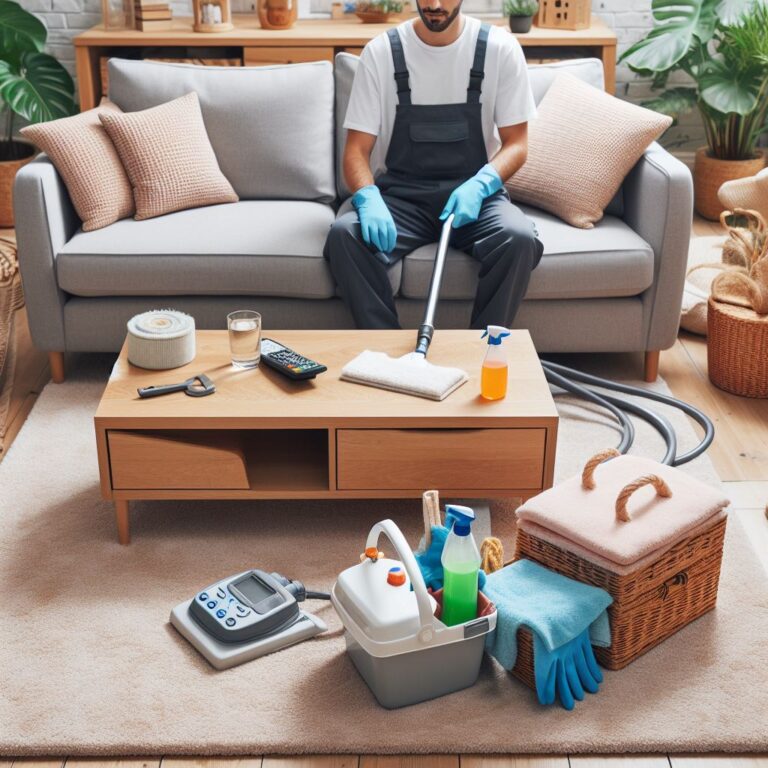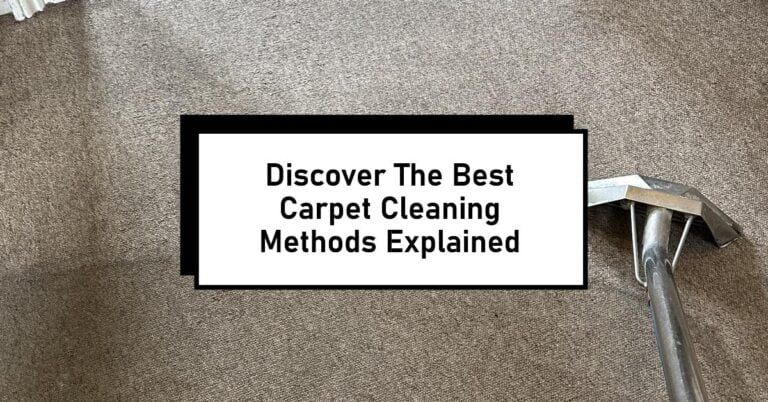Rust stains on carpets can be an unsightly and frustrating problem for homeowners. Whether caused by metal furniture legs, forgotten wet items, or other sources, these stubborn orange-brown marks can seriously detract from the appearance of your flooring. While it’s possible to tackle rust stains yourself using household items and some elbow grease, calling in professional carpet cleaners is often the most effective and safest option for complete stain removal. This comprehensive guide will explore various DIY methods for cleaning rust from carpets as well as the benefits of professional carpet cleaning services.
Understanding Rust Stains on Carpets
Before diving into removal techniques, it’s helpful to understand how rust forms and interacts with carpet fibers. Rust is the result of a chemical reaction called oxidation, which occurs when iron or steel is exposed to oxygen and moisture. As metal objects corrode, they can transfer rust particles onto carpet fibers, leading to discoloration and staining.
Rust stains pose a particular challenge because:
- They contain iron oxide particles that adhere strongly to carpet fibers
- The stains can become more set-in over time if left untreated
- Harsh cleaning methods may damage carpet fibers or cause color fading
With this in mind, it’s crucial to address rust stains promptly and use appropriate cleaning techniques to avoid causing further damage to your carpeting.
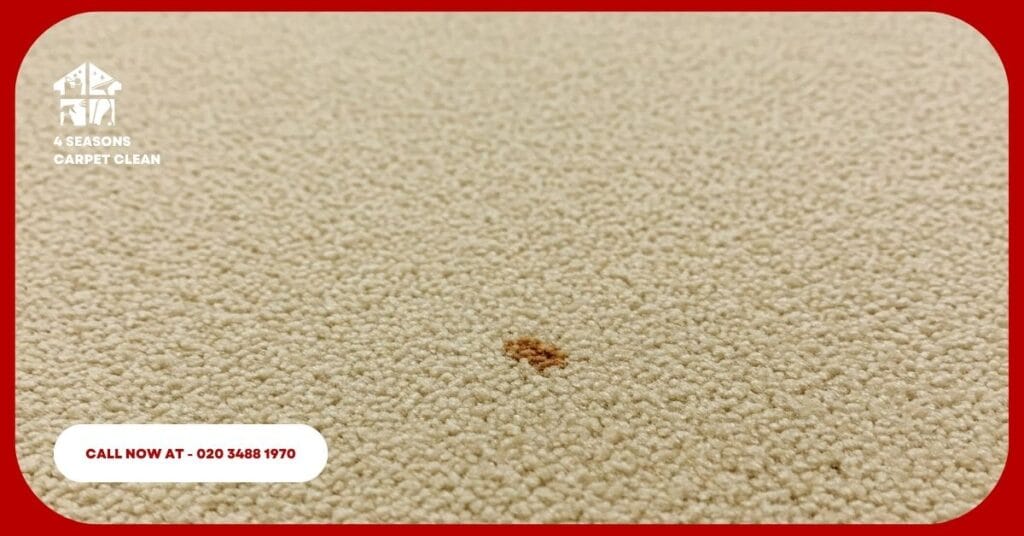
DIY Methods for Removing Rust Stains
If you decide to attempt rust stain removal yourself, there are several household items and DIY solutions you can try:
Vinegar and Baking Soda Method
This popular method utilizes the cleaning power of acetic acid in vinegar combined with the mild abrasiveness of baking soda:
- Mix equal parts white vinegar and water in a spray bottle
- Spray the solution onto the rust stain and let it sit for 5 minutes
- Sprinkle baking soda over the dampened area
- Gently blot the stain with a clean cloth, working from the outside in
- Rinse the area with clean water and blot dry
The fizzing reaction between the vinegar and baking soda helps to lift rust particles from the carpet fibers.
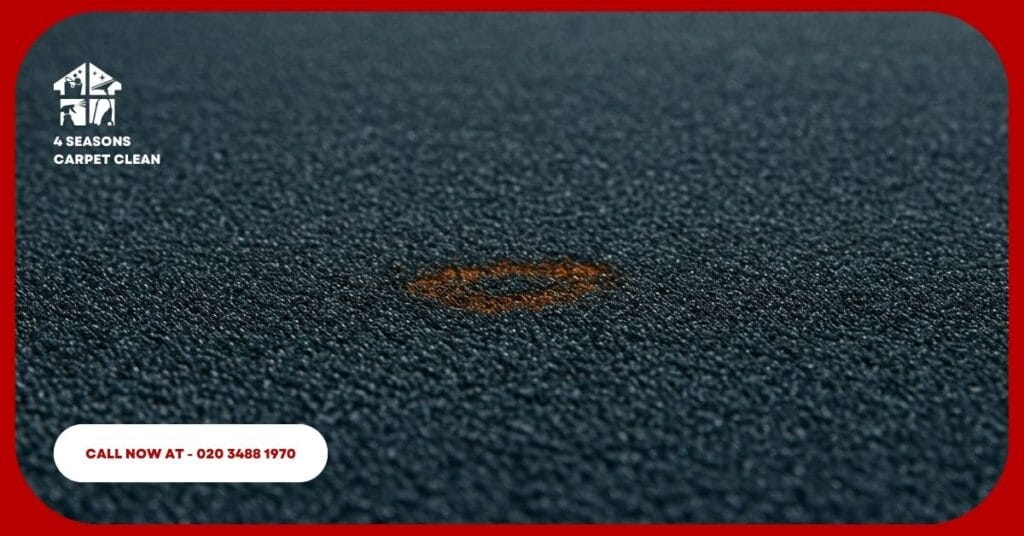
Lemon Juice and Salt Method
Another natural approach uses the acidity of lemon juice and abrasiveness of salt:
- Squeeze fresh lemon juice directly onto the rust stain
- Sprinkle a generous amount of table salt over the lemon juice
- Gently rub the mixture into the carpet fibers
- Allow it to sit for 15-30 minutes
- Blot the area with a damp cloth to remove the solution
- Rinse with clean water and blot dry
The citric acid in lemon juice acts as a natural bleaching agent, making this method particularly effective on lighter colored carpets.
Dish Soap and Water
For milder rust stains, a simple solution of dish soap and water may suffice:
- Mix a tablespoon of liquid dish soap with 2 cups of warm water
- Dip a clean white cloth into the solution
- Blot the rust stain gently, working from the outside towards the center
- Rinse the area with clean water and blot dry
- Repeat if necessary
This gentler method is less likely to damage carpet fibers but may require multiple applications for stubborn stains.
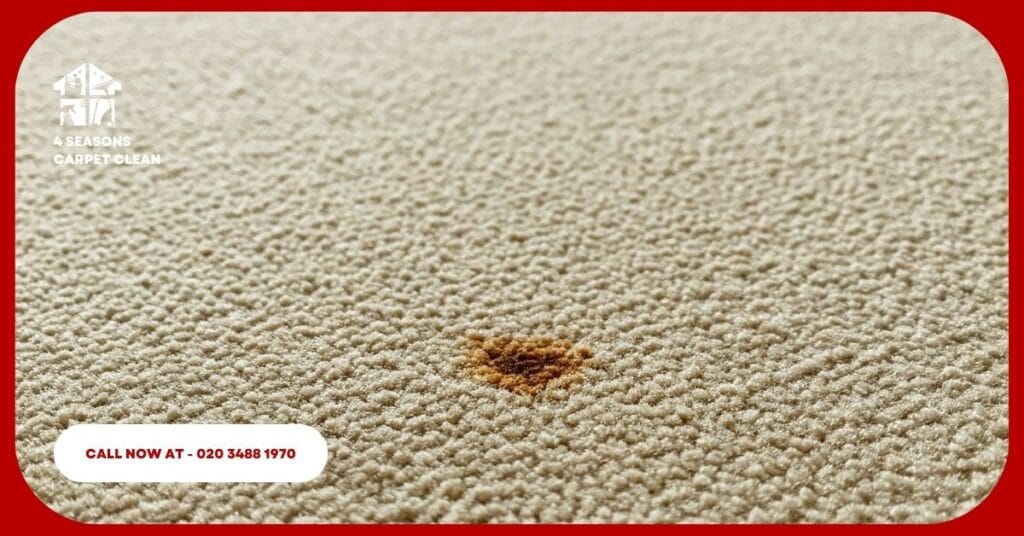
Commercial Rust Removers
For more stubborn rust stains, you may need to use a commercial rust removal product specifically designed for carpets. These products often contain stronger acids like oxalic acid, which can be more effective at breaking down rust:
- Choose a carpet-safe rust remover and carefully follow the manufacturer’s instructions
- Apply the product to the stain as directed
- Allow it to sit for the recommended time
- Blot or scrub gently as instructed
- Rinse thoroughly and blot dry
When using commercial products, always test in an inconspicuous area first and wear protective gloves and eyewear.
Precautions for DIY Rust Removal
While these DIY methods can be effective, it’s important to take certain precautions:
- Always test cleaning solutions on a small, hidden area of carpet first to check for colorfastness
- Avoid oversaturating the carpet, which can lead to mold or mildew growth
- Never mix different cleaning products, as this can create harmful chemical reactions
- Work in a well-ventilated area, especially when using commercial rust removers
- Protect your hands with rubber gloves when handling cleaning solutions
The Benefits of Professional Carpet Cleaning for Rust Stains
While DIY methods can be successful for minor rust stains, there are several compelling reasons to consider professional carpet cleaning services for more severe or stubborn stains:
We are highly recommended on Google Business Profile
192+ 5.0 ★★★★★ reviews
Expertise and Specialized Equipment
Professional carpet cleaners have extensive knowledge of different carpet types and stains. They use specialized equipment and industrial-grade cleaning solutions that are often more effective than consumer-grade products. This expertise allows them to choose the most appropriate cleaning method for your specific carpet and rust stain situation.
Safe and Effective Stain Removal
Professionals are trained to remove stains safely without damaging carpet fibers or causing color fading. They understand the chemistry behind rust stains and can apply the right combination of cleaning agents and techniques to effectively break down and remove the stain.
Time and Effort Savings
Attempting to remove stubborn rust stains can be time-consuming and frustrating. Professional cleaners can often achieve better results in less time, saving you the hassle of repeated cleaning attempts.
Comprehensive Carpet Care
Professional cleaning services don’t just focus on stain removal. They provide a thorough cleaning that addresses overall carpet health, including:
- Removing deep-seated dirt and allergens
- Improving indoor air quality
- Extending the lifespan of your carpet
- Restoring the carpet’s appearance and texture
Prevention of Further Damage
Improper cleaning techniques or harsh chemicals can sometimes worsen stains or damage carpet fibers. Professional cleaners minimize this risk by using appropriate methods and products for your specific carpet type.
When to Call the Professionals
While minor rust stains can often be tackled with DIY methods, there are situations where it’s best to call in professional carpet cleaners:
- Large or deeply set rust stains
- Stains on expensive or delicate carpets
- Multiple rust stains throughout the carpet
- Stains that have not responded to DIY cleaning attempts
- Concerns about potential carpet damage from cleaning
The Professional Carpet Cleaning Process
When you hire a professional carpet cleaning service to remove rust stains, you can expect a thorough and systematic approach:
- Inspection: The cleaner will assess the type and extent of the rust stain, as well as the carpet material.
- Pre-treatment: A specialized pre-treatment solution may be applied to break down the rust particles and loosen them from the carpet fibers.
- Cleaning method selection: Based on the stain and carpet type, the cleaner will choose the most appropriate cleaning method, such as hot water extraction or dry cleaning.
- Stain removal: Using professional-grade equipment and cleaning solutions, the rust stain will be targeted and removed.
- Overall carpet cleaning: The surrounding area or entire carpet may be cleaned to ensure a uniform appearance.
- Rinsing and drying: The carpet will be thoroughly rinsed to remove any cleaning residue and then dried using specialized equipment.
- Final inspection: The cleaner will assess the results and may repeat the process if necessary to ensure complete stain removal.
Preventing Future Rust Stains
Once you’ve successfully removed rust stains from your carpet, taking steps to prevent future occurrences is crucial:
- Place protective pads under metal furniture legs
- Avoid placing wet metal objects directly on carpets
- Address any water leaks or moisture issues promptly
- Consider using area rugs in high-risk areas
- Regularly inspect and maintain metal objects in contact with carpets
Why Professionals Are Often the Smarter Choice
Attempting rust removal yourself risks:
- Fiber Damage: Harsh acids (vinegar, oxalic acid) may degrade delicate wool or silk carpets.
- Incomplete Removal: Home methods often leave faint discoloration or residue.
- Time Investment: Multiple DIY sessions (2–4 hours) vs professionals’ 30-minute treatments.
Certified technicians use industrial-grade equipment and pH-balanced solutions unavailable to consumers, ensuring:
✅ Stain Elimination: 98% removal rate for deep-set rust (Carpet & Rug Institute, 2024).
✅ Fiber Preservation: Advanced encapsulation cleaners protect carpet integrity.
✅ Warranty Compliance: Many manufacturers void warranties for unapproved DIY methods.
When DIY Might Be Worth Trying
Scenario 1: Small, Fresh Stains (< 2 Inches)
Method: Baking Soda Paste
- Blot with cold water.
- Apply paste (3 tbsp baking soda + 1 tbsp water).
- Scrub gently with a toothbrush.
Success Rate: ~60% if treated within 1 hour.
Scenario 2: Synthetic Fibers (Nylon/Polyester)
Method: Hydrogen Peroxide Spray
- Mix 1:1 hydrogen peroxide (3%) and water.
- Spray, wait 10 minutes, blot.
Risk: May lighten dark carpets—test first!
Professional Advantages You Can’t Replicate
| Factor | DIY Approach | Professional Service |
|---|---|---|
| Equipment | Basic brushes/sprays | Truck-mounted extraction systems |
| Cleaning Agents | Store-bought (5–10% acid) | Commercial-grade (20–30% acid) |
| Drying Time | 6–12 hours | 1–2 hours (high-speed air movers) |
| Stain Recurrence | Common | Rare (<5% cases) |
- DIY Success: 3/10 (minor stains on synthetic carpets).
- Pro Success: 10/10 (all materials, including antique wool).
3 Signs You Need to Call a Pro Immediately
- Stain Older Than 48 Hours: Oxidized rust bonds irreversibly with fibers.
- Multiple Stains: Cross-contamination risk from improper DIY cleaning.
- Valuable Carpets: Handmade/Oriental rugs require specialized care.
Cost Comparison:
- DIY: $5–$25 (materials) + 3–5 hours labor.
- Pro: $75–$150 (includes stain guarantee).
Frequently Asked Questions
Q: Can WD-40 remove rust from carpets?
A: Yes. Spray WD-40, let sit for 5 minutes, then wipe with a damp cloth. Avoid oversaturation.
Q: Will rust stains return after cleaning?
A: If the source (e.g., corroded metal) isn’t removed, stains may reappear. Replace rusting items near carpets.
Q: Are natural remedies safe for all carpets?
A: Wool and silk may degrade with acidic solutions. Opt for pH-neutral cleaners for delicate materials.
Rust Removal Chemistry Explained
Rust forms when iron oxidizes in moist environments, creating iron oxide bonds that cling to carpet fibers. While DIY acids (vinegar, lemon juice) break these bonds, professionals use pH-balanced oxalic acid solutions (20–30% concentration) that dissolve rust without damaging fibers
Conclusion: Weighing Effort vs Results
For coin-sized stains on synthetic carpets, cautious DIY might suffice. However, most homeowners save time, money, and stress by hiring certified cleaners like 4 Seasons Carpet Clean. Professionals eliminate guesswork, protect your flooring investment, and often cost less than repeated DIY attempts.
